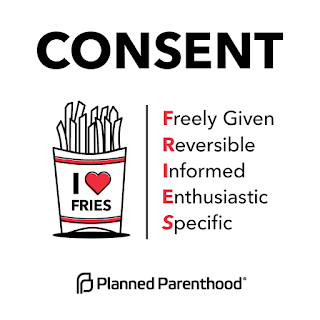For Croteau's "Media and Ideology," I chose to do a quotes post.
“Ideology is related to concepts such as worldview, belief system, and values, but it is broader than those terms. It refers not only to the beliefs held about the world but also to the basic ways in which the world is defined. Ideology, then, is not just about politics; it has a broader and more fundamental connotation” (160).
Croteau began this section by stressing the importance of explicit clarity when discussing the meaning of ideology, and is trying to create that here. He returns to this concept of ideology as a way of defining the world throughout the text, specifically in regards to what is “natural.” He argues that dominant ideology is sometimes expressed as common sense, the "natural order," or "just the way things are," a language choice that eliminates the possibility for questioning or change, because nature is perceived as beyond human control.

“It may be interesting to ruminate over the underlying ideology of a popular movie...However, this inquiry will move from party conversation to serious analysis only if we think more carefully about the patterns of images in media texts, rather than analyzing one film in isolation. At its best, ideological analysis provides a window onto the broader ideological debates going on in society. It allows us to see what kinds of ideas circulate through media texts, how they are constructed, how they change over time, and when they are being challenged” (164).
This passage demonstrates how media is most influential and important as a whole, not in individual examples. Media acts as a system, and, like other systems, has power in its overwhelming patterns. Croteau is arguing that in order to truly analyze the relationship between dominant ideology and media, we must consider the system of media over specific cases. In my own opinion and experience, I find it hard to talk about any system without breaking it into specific examples, and find that I better understand concepts that I can put into terms of my own life. This passage is a reminder to bring those examples back to the larger systems at hand and understand the power in the pattern.
“In short, Gramsci argued that ruling groups can maintain their power through force, consent, or a combination of the two” (165).
Here, Croteau calls on the argument of Gramsci to propose that media is a way of creating a culture that consents to structures that give power to ruling groups. This ties into the argument of “natural” from earlier, since media is used as a tool to create the illusion of ruling group power being “natural” and right. I would call this a combination of force and consent, although it does not involve any physical threat, or at the very least, I would not consider it informed consent (which is consent, right? As far as I know, consent involves knowing you have another choice, but maybe this is only one form of consent, since the text describes consent as being “won.”)
 |
| Not exactly.... |
Points/Questions for Class:
It was interesting to read about the United States in a way that feels like an outside perspective, or similar to the way we read about other societies (page 166). Not sure exactly what my point is here honestly, but I might like to talk more about whether we are "consenting" to media/dominant ideologies.










